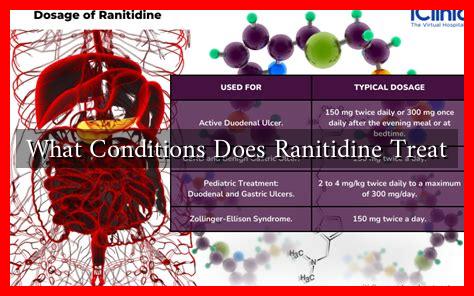-
Table of Contents
What Conditions Does Ranitidine Treat?
Ranitidine, a medication that belongs to the class of drugs known as H2 (histamine-2) blockers, has been widely used to treat various gastrointestinal conditions. It works by reducing the amount of acid produced by the stomach, thereby alleviating symptoms associated with excessive stomach acid. However, it is essential to note that ranitidine has been withdrawn from many markets due to safety concerns related to potential contamination with a carcinogen. Despite this, understanding the conditions it was used to treat can provide valuable insights into its therapeutic applications.
Common Conditions Treated by Ranitidine
Ranitidine was primarily prescribed for the following conditions:
- Gastroesophageal Reflux Disease (GERD): GERD is a chronic condition where stomach acid frequently flows back into the esophagus, causing heartburn and irritation. Ranitidine helps reduce acid production, providing relief from symptoms.
- Peptic Ulcers: These are sores that develop on the lining of the stomach or the first part of the small intestine. Ranitidine aids in healing these ulcers by decreasing stomach acid, which can exacerbate ulcer pain.
- Zollinger-Ellison Syndrome: This rare condition involves tumors in the pancreas or duodenum that cause excessive gastric acid production. Ranitidine can help manage acid levels in patients with this syndrome.
- Heartburn: Often a symptom of GERD, heartburn can be treated with ranitidine to alleviate discomfort caused by acid reflux.
- Prevention of Ulcers: Ranitidine was also used to prevent ulcers in patients taking nonsteroidal anti-inflammatory drugs (NSAIDs), which can irritate the stomach lining.
Mechanism of Action
Ranitidine works by blocking H2 receptors in the stomach lining, which are responsible for signaling the production of gastric acid. By inhibiting these receptors, ranitidine effectively reduces the volume and concentration of stomach acid. This mechanism not only helps in treating existing conditions but also plays a crucial role in preventing the recurrence of ulcers and managing symptoms of acid reflux.
Case Studies and Statistics
Numerous studies have highlighted the effectiveness of ranitidine in treating gastrointestinal conditions. For instance, a study published in the Journal of Gastroenterology found that patients with GERD experienced significant symptom relief after a course of ranitidine treatment. In this study, over 70% of participants reported a reduction in heartburn frequency and severity.
Another research article indicated that ranitidine was effective in promoting the healing of peptic ulcers, with a healing rate of approximately 80% within 8 weeks of treatment. This statistic underscores the drug’s role in managing ulcer-related conditions effectively.
Safety Concerns and Withdrawal
Despite its effectiveness, ranitidine faced significant scrutiny in recent years. In 2019, the U.S. Food and Drug Administration (FDA) announced that some ranitidine products contained low levels of N-nitrosodimethylamine (NDMA), a substance classified as a probable human carcinogen. This led to widespread recalls and the eventual withdrawal of ranitidine from the market in many countries.
Patients who were using ranitidine for long-term management of their conditions were advised to consult healthcare professionals for alternative treatments. Options such as proton pump inhibitors (PPIs) or other H2 blockers have become more prevalent in the management of similar conditions.
Conclusion
Ranitidine was a widely used medication for treating various gastrointestinal conditions, including GERD, peptic ulcers, and Zollinger-Ellison syndrome. Its mechanism of action, which involves blocking H2 receptors to reduce stomach acid production, made it effective for many patients. However, safety concerns regarding its potential carcinogenic effects have led to its withdrawal from the market.
As healthcare continues to evolve, it is crucial for patients to stay informed about their treatment options and consult with healthcare providers for safe and effective alternatives. Understanding the conditions that ranitidine treated can help patients recognize symptoms and seek appropriate care.

